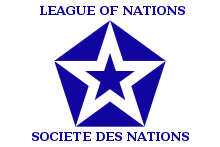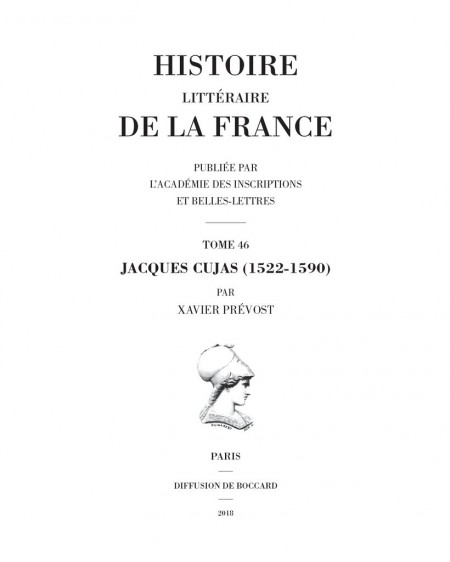Via Hsozkult, we learned
of a call for papers for a conference on the Paris Peace Conference and the
Treaty of Versailles. Here the call:
Upon the
occasion of the hundredth anniversary of the signing of the Treaty of
Versailles, the Belfer Center for Science and International Affairs, John F.
Kennedy School of Government, Harvard University, and the Center for Critical
Democracy Studies at The American University of Paris will hold two conferences
in the Spring of 2019 in Paris and the Fall of 1919 in Cambridge, MA. Designed
as a pair of facing conferences, the first will re-appraise the 1919 Paris
Peace Conference from the vantage point of new historical evidence and recent
scholarly focus on its global impact, while the second conference will look
back upon 1919 from the perspective of their continuing contemporary relevance
to both international relations and policy making. Both conferences will be
deeply interdisciplinary, including featured speakers and panelists from
history, international relations, public policy and diplomacy, in an effort to
approach the Paris Peace Conference from multiple, international perspectives.
Call for Papers
for the Paris 2019 Conference: May 23-25, 2019 (deadline for paper and panel
submissions, October 15, 2018)
To commemorate
the 100th anniversary of the signing of the Treaty of Versailles, the Paris
conference will explore the Treaty, and the Paris Peace Conference of 1919 more
broadly, from the perspective of a new world order it simultaneously did and
did not make. In 1994, on the 75th Anniversary of the Versailles Treaty,
leading scholars of European and international history gathered to reassess the
Treaty of Versailles and its impact on the trajectory of twentieth-century
history. The result was a path-breaking volume that both re-assessed the
divergent aims of the different Great Powers at the Paris Peace Conference, as
well as how the negotiations themselves laid the foundation for its own
collapse twenty years later. But the volume remained largely Eurocentric—the
rest of the world emerged in the volume as bit players on a European stage. In
the past two decades, historians of modern Europe have pushed our understanding
of the long nineteenth century toward new borders, asking novel questions and
forcing us to recognize the power of movements, processes, trends, and
influences on a planetary scale. Indeed, it was this “transformation of the
modern world” (Osterhammel) during the global nineteenth-century that ran
headlong into the cataclysmic events of the first “World” War. From 1914-1918, the
world slipped into a massive military conflict on an unprecedented scale. In
the immediate aftermath of the war, the task at hand was little less than
constructing a new world order.
Building on the
growing interest in World War I as a global conflict that extended far beyond
the borders of Europe, the Paris 2019 conference will explore the global
political ramifications of the treaties prepared at the Paris Peace Conference
in 1919. It is hard to overstate the importance of the 1919 Paris Peace Conference
for redefining the place of the United States in the world, re-shaping the
geo-political configurations of the Middle East, Asia and Europe, the new place
of the South Pacific, the need to re-conceive of world relations with a new
Soviet Russia, the massive impact on European colonies in Africa, the place of
Latin America, and the construction of the League of Nations. Far from a mere
cessation of hostilities, the peace treaties signed in 1919 and 1920 marked a
massive transformation on local, national, continental and global scales.
Four renowned
experts of the First World War have agreed to present keynote addresses at the
conference: Margaret MacMillan (Oxford University), Priya Satia (Stanford
University), Tze-ki Hon (City University of Hong Kong), and Adam Tooze
(Columbia University).
Besides the four
plenary speakers, the Paris 2019 Conference will invite panelists in multiple
disciplines relating to all aspects of the 1919 Paris Peace Conference.
Alongside historians, the conference seeks to include other perspectives from
the social sciences and humanities, including, but not limited to, historical
sociology, political anthropology, political science, economics, and
literature. Since the conference focuses particularly on the global effects of
1919, the organizers encourage the participation of scholars whose area of
focus is outside Europe. To this end, there will be some funding available for
early-career scholars and those traveling long distances.
The Paris
conference organizers will proceed immediately to a broad call for papers, and
a simultaneous invitation to specialists in the field to participate. Possible Panel Themes may include:
- Migration and Minority Rights and the
Paris Peace Conference
- The Paris Peace Conference and New International Intellectual Networks
- The Creation of New Regional and Inter-Regional Politics
- The Paris Peace Conference and the Rise of New International Organizations
- Sovereignty, Self-Determination, and De-Colonization
- The “New Woman” and the Paris Peace Conference
- The Paris Peace Conference, International Socialism, and the Specter of
Communism
The intention of the organizers of the
conference, in alignment with the mission of the Center for Critical Democracy
Studies, is to weave the conference preparation and presentation into course
work at the American University of Paris, making the Treaty the subject of its
annual freshman seminar, Democracy Lab, and summer Democracy Institute. In
addition, the Center publishes the Tocqueville Review, which will devote a
special two-volume issue to the best papers of the conference.
The Paris Conference will take place on May
23-25, 2019.
Please submit paper or full-panel proposals
(300 words) and a brief (2-page) cv to parispeace1919@aup.edu by October 15,
2018.
Summary of key dates:
October 15, 2018 Deadline for paper proposals
November, 2018 Final decisions on paper and panel proposals
January, 2018 Preliminary Program released
March, 2018 Final Program released
May 23-25, 2018 Conference
Kontakt
Albert Wu
awu@aup.edu / albert.wu@gmail.com
102 rue St. Dominique
75007 Paris

















